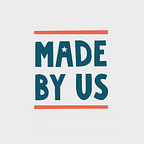Who Tells Your Story? Tips for Capturing Your Personal Past — and Present
Meeting up with grandma this weekend? Don’t forget a tape recorder—and maybe even a DNA test.
Start with what you have — the people around you
You don’t need years of rigorous archival experience to document your family’s rich history. Beginning the journey is as easy as sitting down for a conversation with your parents at the dinner table, or with far-away relatives over Zoom. Some tips:
- Keep it informal — Your grandparents didn’t sign up for an interrogation about their childhoods. Keep it relaxed and let the conversation flow naturally. You’ll get the best stories that way!
- Use props to prompt — Showing family members photos, letters, scrapbooks or other artifacts can jog memories about long-forgotten moments.
- Have a plan— Need to fill in specific gaps in your family history? Want to avoid hearing the same WWII stories your grandpa has told 100 different times? Come prepared with a few props, prompts or guiding questions and keep returning to them throughout the conversation.
- Record the conversation— As long as everyone’s comfortable with it, of course. One of the best ways to preserve oral histories as they were originally told is by recording the stories. That way, when you share the same tales with your own kids in 20 years, you don’t forget any of the best details.
Looking to take your family history documentation even further? Check out the Folklife and Oral History Interview Guide from our partners at the Smithsonian for more tips and tricks on collecting meaningful stories from friends and family members.
Need some inspo to get started? Meet the world’s youngest certified genealogist, Alex Trapps-Chabala.
Alex Trapps-Chabala’s passion for genealogy was sparked at age 12, when he started researching his own family history while living in Alabama. At age 15, Trapps-Chabala’s became the youngest certified genealogist in the field.
When he was first starting out, experienced genealogists told Trapps-Chabala that tracing his African American family history would be impossible. Boy, did he prove them wrong! In 2018, he launched KinConnector — a genealogy service that combines archival research with social justice to help people of color across America uncover their family histories.
Trapps-Chabala’s work takes both an academic and trauma-informed approach to genealogy, helping Black Americans and other people of color navigate the complex—and often hidden—records of their family history.
My family history is impacted by slavery. Where do I start?
Enslaved.org — a collaboration between scholars and historical institutions like the University of Maryland, the Andrew W. Mellon Foundation and Michigan State University— is focused on aggregating and digitizing the records of formerly enslaved individuals across America.
This crowdsourced, open archive includes hundreds of thousands of newspaper ads and other records placed after the Civil War by African Americans searching for family members they had lost to the slave trade.
Today, these records help amateur genealogists and experts like Trapps-Chabala track down long-separated ancestors.
Currently, Enslaved.org has over 620,000 records to search from, but the database plans to expand this year with help from donors and crowdsourced documents from the community.
History — it’s in our DNA. Can testing help us uncover it?
Searching for your ancestors through a DNA service like Ancestry.com or 23andMe? Some of your genealogical connections might surprise you—like for Senator Cory Booker, when he discovered he was related to Drag Race host RuPaul.
Your DNA test results might not link you to your favorite reality TV star, but that doesn’t mean you won’t uncover some surprising connections.
While you wait for your spit sample results, discover some other unexpected celebrity connections on the PBS show Finding Your Roots, hosted by Harvard historian Henry Louis Gates.
Not interested in shipping your DNA off to a laboratory? Head to the Historical Society of Pennsylvania’s website for some of the most complete and professional genealogy resources in the country, including online courses with expert tips and tricks for family history researchers. Who knows? You might just be the long-lost cousin of your favorite YouTuber.
Made By Us brings together the nation’s history museums and sites in an unparalleled collaboration to better engage Millennials and Gen-Z with American history for informed civic engagement, leading up to the nation’s 250th anniversary in 2026. Don’t miss out — sign up for our emails and follow us on Instagram, Twitter and Facebook.
